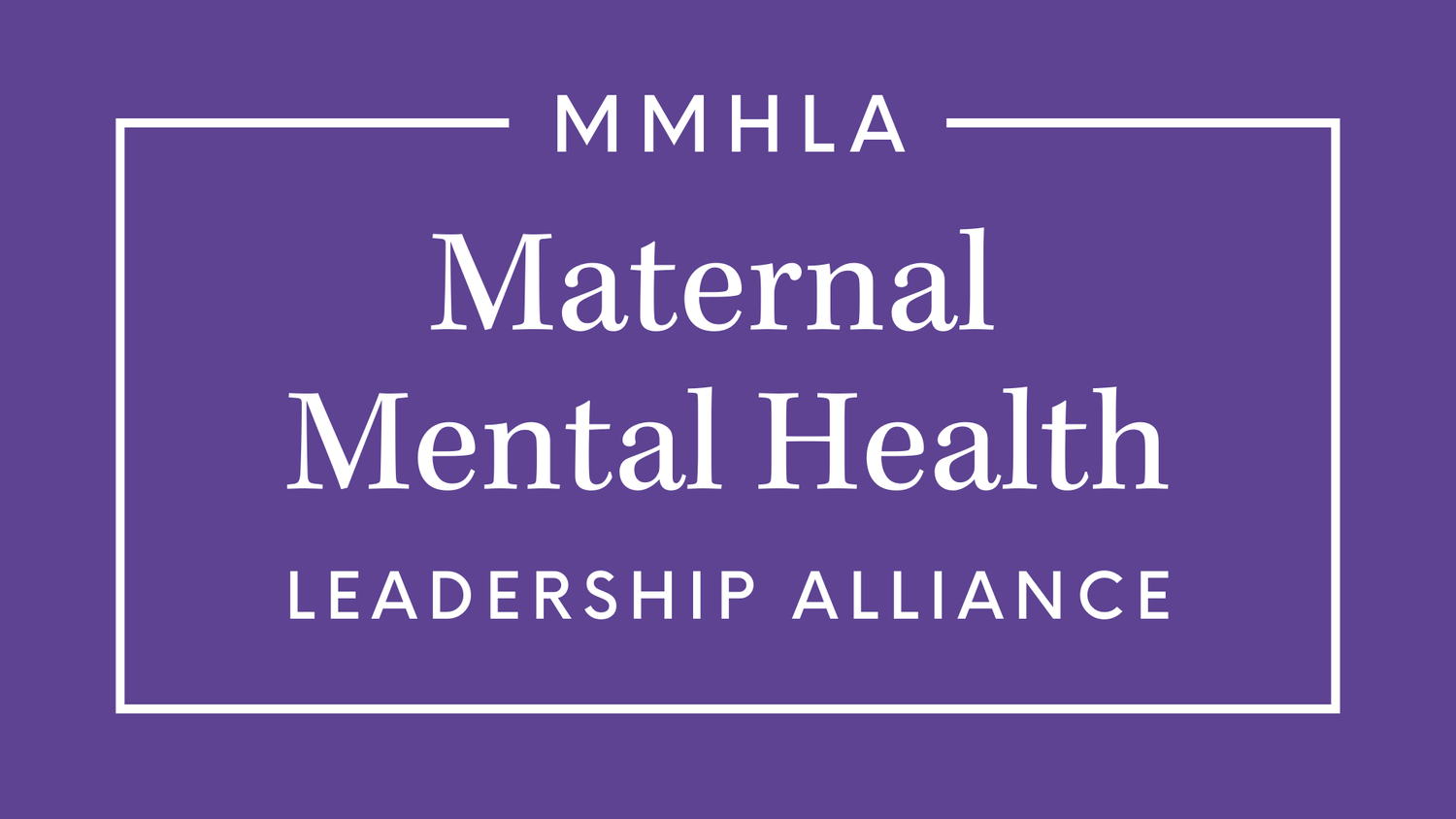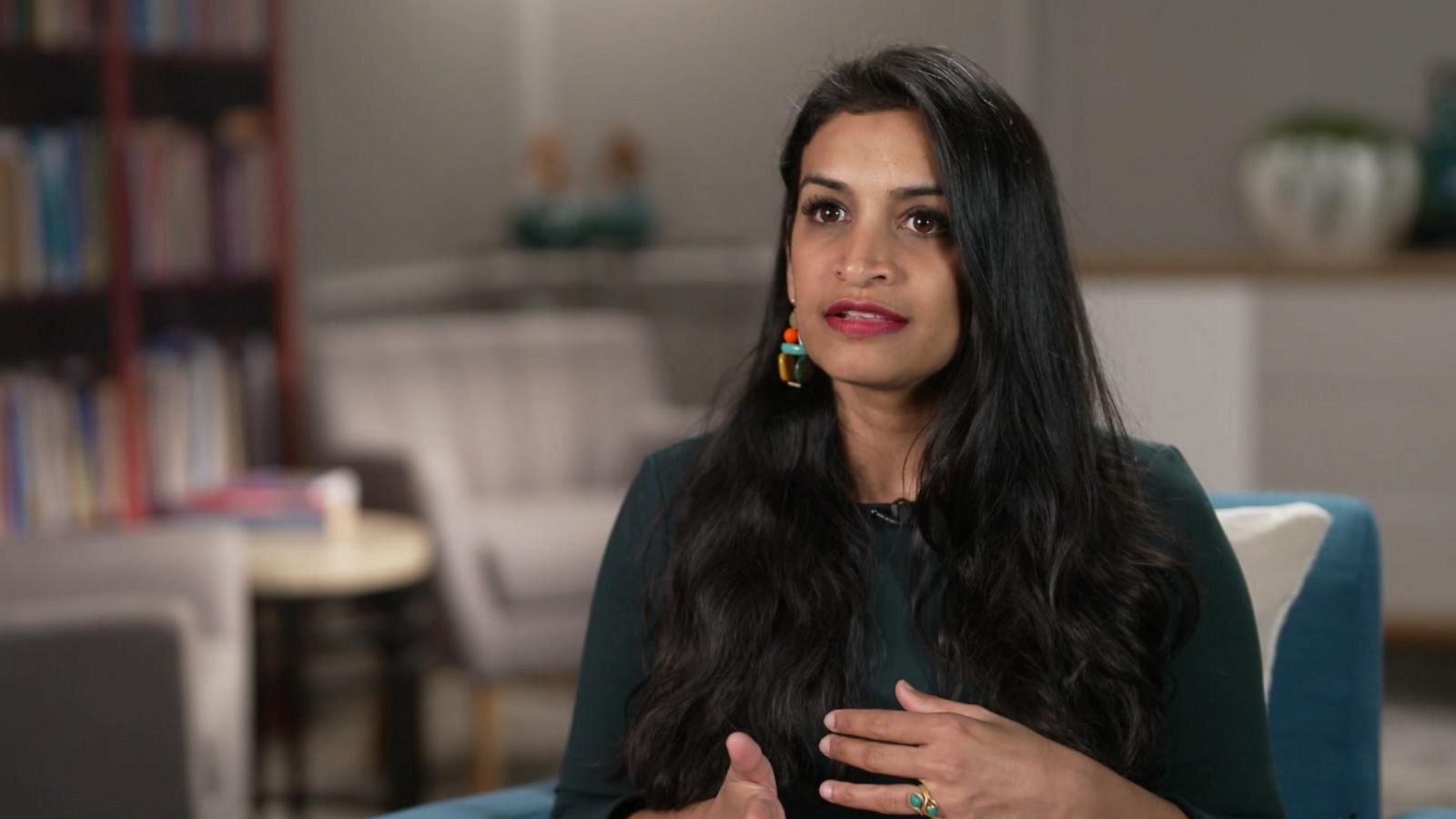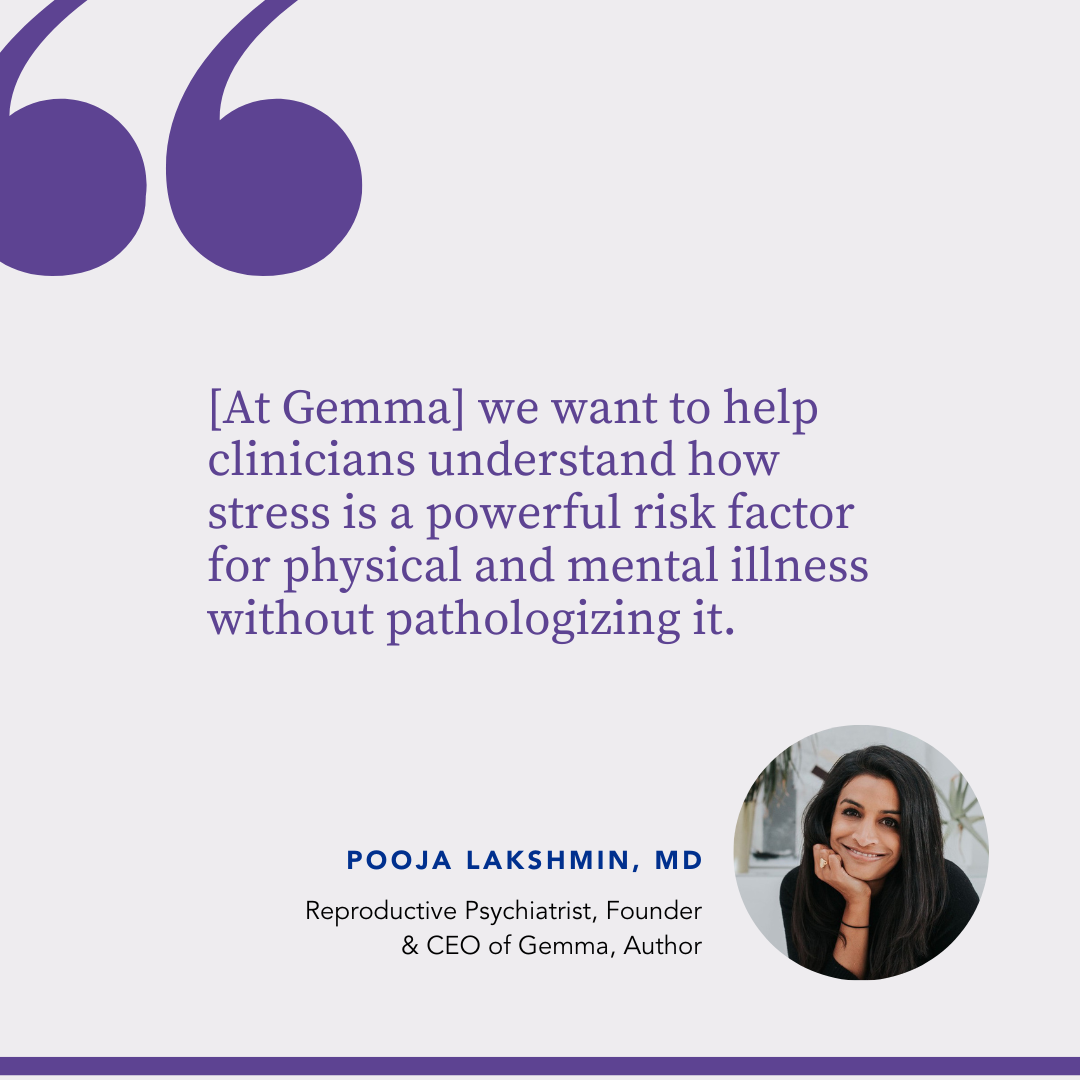Reproductive Psychiatrist Shares Her Journey to Perinatal Mental Health and Real Self-Care
MMHLA Executive Director Adrienne Griffen recently met with Dr. Pooja Lakshmin — a reproductive psychiatrist, entrepreneur, author, self-described feminist, and former MMHLA board member. Here are some highlights from their conversation.
Adrienne: How did you get involved in Perinatal Mental Health?
Pooja: My parents are from India, and the South Asian culture is quite patriarchal. I don’t have any brothers, but I have a cousin who is six months older, and he was allowed to date and stay out late at night. But I wasn’t allowed to do those things because I was a girl, so of course I was going to become a feminist! So when I went to college at Penn, I focused on women’s studies and the biological basis of behavior. I wanted to understand gender and how it impacts our lives, and I was also interested in the brain.
When I got to medical school, I thought I was going to be an OB/GYN (which was my first rotation), but I hated being in the OR. I didn’t like the invasive nature of it. I realized what I enjoyed the most was talking to my patients, and that brought me to psychiatry.
I had my own winding path, leaving psychiatry and medicine for two years, and when I came back, I got connected with George Washington’s Five Trimesters Clinic and fell in love with Perinatal Mental Health.
There are two things I love about perinatal psychiatry. First, our patients get better. We have good treatments, and they work. So, as a clinician, I feel fulfilled that I help women through a temporary experience with mental health issues and that they recover and lead normal lives. It is so fulfilling to realize you helped someone get to a good place.
Second, I really believe that perinatal psychiatry is a social justice field. Everything regarding pregnancy and postpartum is tied to gender and equity — whether a woman has the resources to see a therapist, whether she is supported to take her medicine, whether she has the ability to protect her sleep. All of these things are tied to economic status and the conditions that women live in all around the world.
I dropped out of psychiatry and then came back to psychiatry. When I left my psychiatry residency program, I was really depressed and heartbroken about wellness. I went into medicine thinking there would be a solution that could offer some kind of panacea. I know that sounds so naïve, but one of my good friends pointed out the fact that I had to run so far away, and to a place so extreme, which points out how dehumanizing the medical system is for doctors and for patients.
So when I came back to psychiatry, I had a psychoanalyst mentor who helped shepherd me back into the medical system. He also helped me grieve the fact that doctors are not gods and that we have failings too, and that we can only do so much. He helped me realize that the large systems are really broken, which is why we need organizations like MMHLA, and why we need to fight for the rights of mothers and patients.
Adrienne: Along with your private practice, you also run a company called Gemma. What is Gemma?
Pooja: Gemma is a digital platform that centers education as a modality to support women’s mental health. At Gemma, we are building the Master Class of women’s mental health with a focus on impact and equity. We provide conversations, courses, and community facilitated by women’s mental health experts.
Gemma was born out of my Instagram account, which I started in 2018. I was one of the few psychiatrists on Instagram at that time, and I was getting all these questions from new mothers about how to address their mental health. Of course, I couldn’t provide medical advice over Instagram, so I wanted to create a place where mothers could get professional evidence-based information about mental health during and following pregnancy.
Dr. Pooja Lakshmin being interviewed about her new book, Real Self-Care, on Good Morning America.
I founded Gemma in 2020 when I was teaching pregnancy and postpartum mental health Zoom classes. I am lucky to work with two awesome people: Dr. Kali Cyrus, a psychiatrist who identifies as Black and queer, and Dr. Lucy Hutner, another reproductive psychiatrist who has been involved with the National Curriculum in Reproductive Psychiatry and is the lead editor of the recently published APA Textbook on Women’s Reproductive Mental Health.
For pregnant and postpartum moms, we teach digital classes over Zoom, we have WhatsApp threads for the early motherhood community, and we provide specific resources for different groups of women, including Black and LatinX mothers. We share information, such as coping skills, and we provide space to talk about hard things like race, identity, and privilege. One of our big pillars is to address maternal mental health in a way that is inclusive of all different cultural factors that play into how we view pregnancy and postpartum and the choices that are available.
From the get-go, a segment of the women who attend our classes have been moms who are also clinicians, and they started asking if they could get continuing medical education (CME) credits. So this fall we are also starting classes specifically for clinicians. We want to help clinicians understand how stress is a powerful risk factor for physical and mental illness without pathologizing it.
As clinicians, we can’t say to new mothers, “Just relax! Don’t be stressed!” That doesn’t work, and that actually increases the mother’s stress. So we focus on interventions we can use from a therapy standpoint when we are counseling and working with our patients who are in this place of high stress without adding to the shame that they already feel. This course, called Flipping the Script, is being taught in the fall by Dr. Molly Dickens, a stress physiologist, and Dr. Lucy Hutner. We also teach a class called Real Self-Care for Healthcare Workers, which addresses the unique constraints of working in healthcare, and one called Reducing Your Oppressive Footprint as a Healthcare Professional.
Adrienne: I knew we would get to talking about real self-care, and your new book, Real Self-Care: A Transformative Program for Redefining Wellness. What prompted you to write this book?
Pooja: In one word: RAGE. Because of my own personal experience in which I was heartbroken by wellness, and also because of my patients’ perspectives. They keep telling me, “I’m burned out. I’m stressed out. I’m not eating well. I’m not sleeping well. I’m not getting to yoga. I just don’t have time to do all these things because I have so much on my plate, and I feel like it’s my fault.”
With Real Self-Care, my motivation was to say, “No, it’s not your fault.” The entire American economy is built on women not having time to take care of themselves because they are taking care of everybody else, and I wanted to go a step further to answer: “So what am I supposed to do?”
Pooja’s new book is out now!
Real Self-Care: A Transformative Program Program for Redefining Wellness
Real Self-Care points to a solution that is an internal decision-making process that can be layered into everything you do. It is actually a way to BE. It is built on four key principles:
Setting boundaries and learning how to deal with guilt;
Developing self-compassion and the way you talk to yourself;
Identifying your values and making decisions that are aligned with your own internal sense of self; and
Recognizing that practicing real self-care allows you to reclaim power over your life.
I created a tool called the Real Self-Care Compass. In the center is your WHAT: your goal and what you are trying to achieve. The next ring is your HOW: the values you would like to bring and your personal manifesto. This goal and how you are going about achieving it are filling you up. The final ring is your WHY: this is your personal manifesto and a reminder that you can come back to when you feel disconnected from yourself.
Dr. Pooja Lakshmin demonstrating the Real Self-Care Compass.
You can’t meditate your way out of a 40-hour work-week with no childcare. That’s not how wellness works. I’m not suggesting that we all just opt out and quit our jobs — most folks don’t have that luxury. There is a middle path, and it is called “good enough,” and you are allowed to give yourself permission to be “good enough.”
Self-care is not being selfish. You have to take time to take care of yourself, and in this line of work — working with mothers who need our support — it’s particularly important.
Adrienne: How did you protect your mental health during your recent pregnancy and postpartum period?
Pooja: I did all the things that I tell my patients to do: I prioritized my own mental health. I had the compassion to execute and the resources to protect my mental health. So I did three things: I used antidepressant medication, I was flexible with infant-feeding choices, and I prioritized sleep.
I previously suffered from anxiety and depression, and I have taken medication and been in psychoanalysis for the last seven years. I stopped Zoloft while I was going through IVF to get pregnant, but I decided to go back on Zoloft during my pregnancy because I knew I was at high risk. I made this decision in consultation with my own psychiatrist.
Because of everything I know as a reproductive psychiatrist, I was also very flexible with myself around infant feeding decisions. I was under the philosophy that it would be OK if I fed at the breast, and it would be OK if I didn’t. I found within the first week of my son’s life that breastfeeding wasn’t working very well, so I decided to go with pumping, and it really worked for me. I have a lot of anxiety, and I liked that I could see how much milk I was producing and that I could measure how much my son was drinking from the bottle. We also supplemented occasionally with formula, so I was able to have time for myself, and my partner and I were able to have some time for ourselves, which was really important for our relationship and our mental health.
Finally, sleep protection was really important for me. I acknowledge I have resources to pay for this kind of help, and my partner had paid parental leave. So we had a night nurse for about 3 nights a week for the first month, and then 2 nights a week for a couple of months. Having that respite was so important. It was really helpful to know that we could be “off duty,” and that I could get at least 4-5 consecutive hours of sleep.
We devalue care-taking work. People say, “Why should I pay $40 an hour for someone to watch my baby?” Because it is important to take care of yourself, to step aside briefly from the never-ending care-taking, and to rest and rejuvenate.
About Pooja Lakshmin, MD
Dr. Pooja Lakshmin is a reproductive psychiatrist, entrepreneur, author, self-described feminist, and former MMHLA board member. Visit her website at poojalakshmin.com or her instagram @poojalakshmin to learn more about her and the resources she offers for mothers, birthing people, and clinicians.






